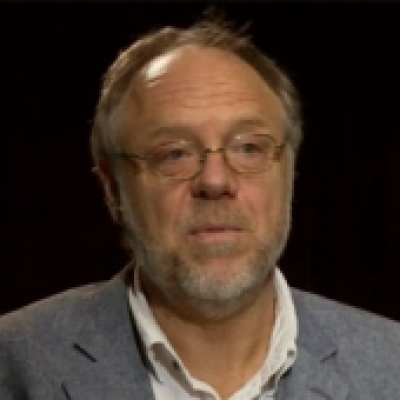



 Kevin Barrett
Kevin BarrettCI: The situation in Kashmir is very dangerous. It is one of the world’s worst and least-known human rights catastrophes, and has been for decades. When I interviewed Andre Vltchek on this show four years ago, he said that India’s abuse of the people of Kashmir was not only comparable, but in some ways worse than the Zionist abuse of the people of Palestine. And now we’re facing a much greater catastrophe. India is talking about annexing Kashmir, which might very well bring on war with Pakistan. So please introduce yourself and tell us how you came to be working on human rights in Kashmir, and how you see the situation there?
Sheik Ubaid (SU): I have been involved in the human rights struggle, whether in Bosnia, Burma, or Congo — which we don’t hear much about, it’s the second-longest-running genocide, the longest being in Burma-Myanmar. And I’m from India, which is why I have been keenly aware of what’s going on in Kashmir even when it’s not in the news. India does not encourage foreigners, even in “normal” times, to report from Kashmir. But now the crisis has exploded. And there is danger of nuclear war. As the prime minister of Pakistan has said, if war breaks out, and two nuclear powers — one being so disproportionately larger, India is seven times bigger than Pakistan — there is no way this will be a limited war.
[I have been working as] an antiwar activist, and speaking up for the suffering Kashmiris. There have been mass graves of Kashmiri civilians; there have been tens of thousands of rapes, since the mid-1980s, when the current situation developed, even though the problem dates back to the partition of British India. So that is why I got involved. And also we have been trying very hard to prevent the takeover of India by fascist forces — forces that have been slowly infiltrating Indian power centers in recent decades, and now have taken over the government. These are the people who killed Gandhi and who openly want to make India an exclusively Hindu state ruled by the upper caste. So we have been resisting that. Our coalition, the Coalition Against Genocide, was instrumental in stopping the visa of Modi, who is now the prime minister of India, so he couldn’t come to the US. He can now come to the US as prime minister. But he can’t come to the US as a private citizen because we got his visa revoked in 2005.
CI: Some think of Modi as being one of these right-wing populist leaders, like Trump, Boris Johnson, Marine Le Pen in France, Orban in Hungary, and so on. But as you mentioned, Modi is representing a movement that wants to put the upper caste in total control. What kind of populist movement is that?!
SU: That’s a very good question. It’s so ironic. India’s caste apartheid is the longest-running apartheid system in the world. It goes back at least 3,000 years, when the Aryan invaders came from the steppes of Central Asia to Iran and India’s Indus Valley civilization, which was one of the world’s oldest civilizations. So the Indus Valley people were pushed back into South India. And there they speak a language that is different from the Indo-Aryan language of North India, which is related to European and Iranian languages. Gradually the caste system developed and became a rigid system where the upper caste ruled the lower castes, and the huge population of the original inhabitants of India became outcasts, called Dalits. And then there is an even older population in India, one of the initial waves that came out of Africa 70,000 years ago. The upper castes were able to manage things by bringing in religion, which taught, “If you are born into a lower caste or an outcast it is because of the sins you committed in a past life. So if you serve the upper caste, then in the next life you will be born as an upper caste. If you resist, maybe in the next life you will be born as an animal.” So there was not much resistance until modern times. After exposure to Islam, and later exposure to Western liberal philosophies, they started to struggle. Gandhi, in spite of having some racist views about Africans, was quite good for lower castes. And that also took some of the pressure off them, and the Dalits started to organize. But they could not gain all they wanted because Gandhi also drew a line. And that is why the leader of the Dalits, [Bhimrao Ramji] Ambedkar [1891–1956], the father of India’s constitution, developed differences with Gandhi.

CI: How did the Hindu fascist movement begin? As you said, these are the people who killed Gandhi, and who are working for authoritarian rule by the upper caste. Was Hindu fascism a backlash against the way the Dalits had been finding escape routes, whether through Islam or Western thinking?
SU: No. When [Hindu fascism] started the Dalits were not a threat. It was more an anti-Muslim feeling that started it. The Brahmanic founders of RSS (Rashtriya Swayamsevak Sangh) were mostly from an area of India called Maharashtra, where anti-Muslim feeling was quite strong. When they saw how Mussolini, and later Hitler, rose to power, they got their inspiration. So they mixed religion with ultra-nationalism. And they realized that maybe the British, who allowed the Congress Party and other parties to start functioning, might leave one day. And they did not want Muslims to have any say or power in running India. So actually it is fascinating that initially they wanted to have a division of India, because they wanted areas where Muslims lived in large numbers to be separated, so they [the Hindu fascists] could take over India completely, and then later take over those Muslim lands also, even though they blame Gandhi and Jinnah for the partition of India. But it was Vinayak Damodar Savarkar [founder of Hindutva or Hindu nationalism] who was the first to say there were two different nations, Hindus and Muslims. And his policies, and the policies of other Hindu extremists, led a secular Muslim leader of Congress, Jinnah, to realize that in India, Muslims would be at the total mercy of Hindu majoritarian tyranny if the [Hindu] fascist movement and its thinking spread. So he decided to support the creation of a separate homeland for Muslims.
For decades [the Hindu fascists] worked quietly. They infiltrated law enforcement and education, even when the Congress Party, the party of Gandhi, was ruling India.
CI: Is Pakistan facing a difficult existential situation with its much larger neighbor, India, bent on not only taking Kashmir and committing genocide against the population there, but also being unwilling to live with an independent Pakistan? This creates a very difficult situation for Pakistan as well as Kashmir, doesn’t it?
SU: Yes, it does. Not only taking over Kashmir, they want to take over Kashmir’s land, but they’re not interested in the Kashmiris living there. Kashmir has three main parts: the Valley of Kashmir, Jammu region, and the region of Ladakh. We should not forget that Jammu was also a Muslim-majority area in 1947. That area was ethnically cleansed in 1947 and became Hindu-majority. So they want to do the same thing in the Valley of Kashmir, to change the demographics there, to have an ethnic cleansing, a genocide. And it is just natural for people, as human beings, to resist. Even if you take away religion, take away the Pakistani factor, nobody wants to be treated as slaves or even be killed or ethnically cleansed. So that is the reason why in 1987, when the Kashmiris realized that India would not allow them to have fair elections even locally, the population rose up. And that led to massive reprisals, killing at a massive scale, and rape, which was later adopted by the Serbians who used it in Bosnia. Some of the Serbs responsible even mentioned that they got the idea from the way rape was being used in Kashmir in the late-1980s and early-1990s.
CI: During the Cuban missile crisis, both leaders, Kennedy and Khruschev, were relatively reasonable, sane, peace-loving people. But this time around [though Imran Khan may be in some ways comparable to Kennedy] Modi is a cartoon villain. If we’d had someone like that on one side during the Cuban Missile Crisis, it’s hard to imagine how nuclear war could have been prevented. How can the world restrain somebody like Modi?
SU: That is a very good question. The world could not restrain Hitler. But Hitler’s Germany was a world power. India is not yet a world power. The other thing is, we can learn from the mistakes that were made in Germany. Hitler was allowed to completely take over the military. The Indian military so far has not been completely taken over by the RSS. It is the last institution. Even the judiciary has been taken over now. That is why the Supreme Court is dragging its feet over so many petitions that have been filed about Kashmir — because the special status of Kashmir was a treaty between two states, Kashmir and India, and was abrogated illegally, in violation of the Indian constitution. But the Supreme Court won’t deal with it. And the Indian military, for the past several years, is being slowly saffronized — saffron being the color of the Hindu supremacist movement. So there is still some time, there is still some hope. But the world will have to start moving fast and put pressure on India.
CI: When Imran Khan spoke at the United Nations, he begged the UN to intervene. What kind of intervention could help? The UN has never forced India to honor its promise to hold a plebiscite in which the people of Kashmir could decide their own fate. What kind of intervention could stop the situation from moving toward nuclear war?
SU: Security Council resolutions, taking it to the International Court of Justice, can put a damper on this completely outlandish and outrageous move by Modi. If India tried to take over the whole of Kashmir, even if Pakistan were defeated, China would not allow that. So the UN should realize, and activists and Western governments should realize, that this war is not going to be a limited conventional war. It might be the end of human civilization. Maybe not every human being would be killed right away, but with the destruction of the ozone layer, and nuclear clouds blocking sunlight… between them, the two countries have nearly 150 nuclear bombs, and China has far more. That should take away our peaceful sleep. We should be very concerned about what’s going on in Kashmir. g
Listen to the complete one-hour interview at https://www.patreon.com/posts/30596754.
